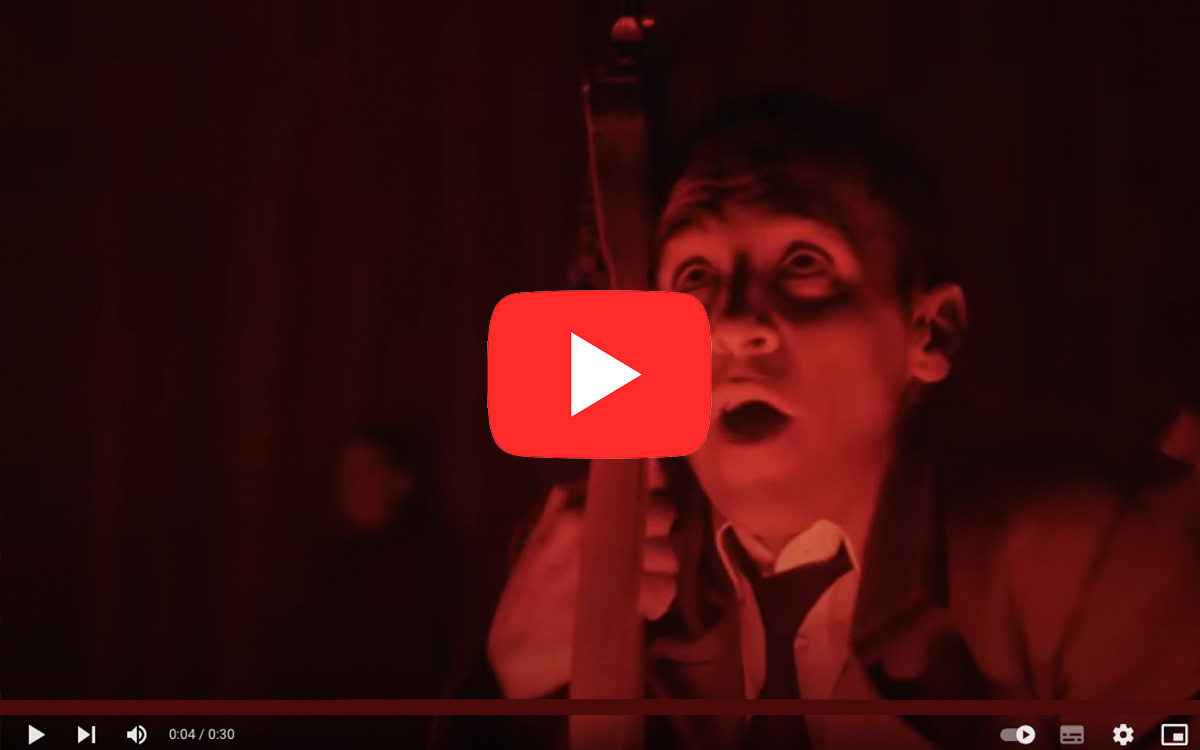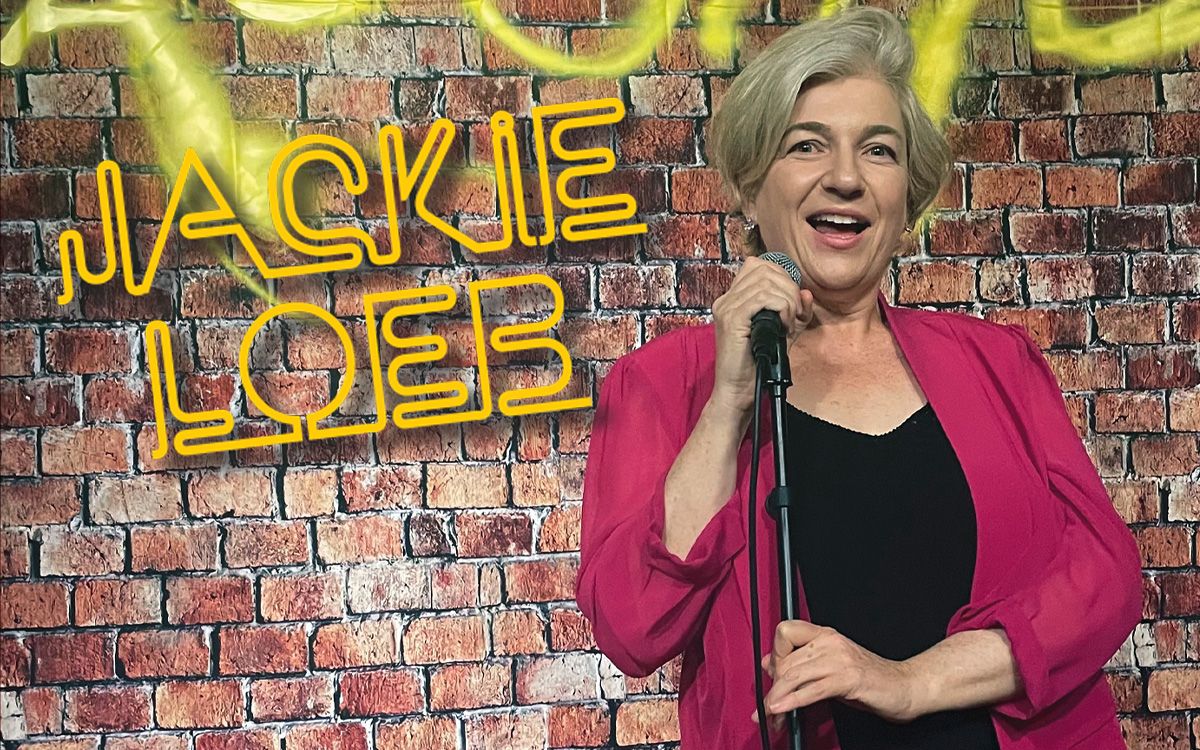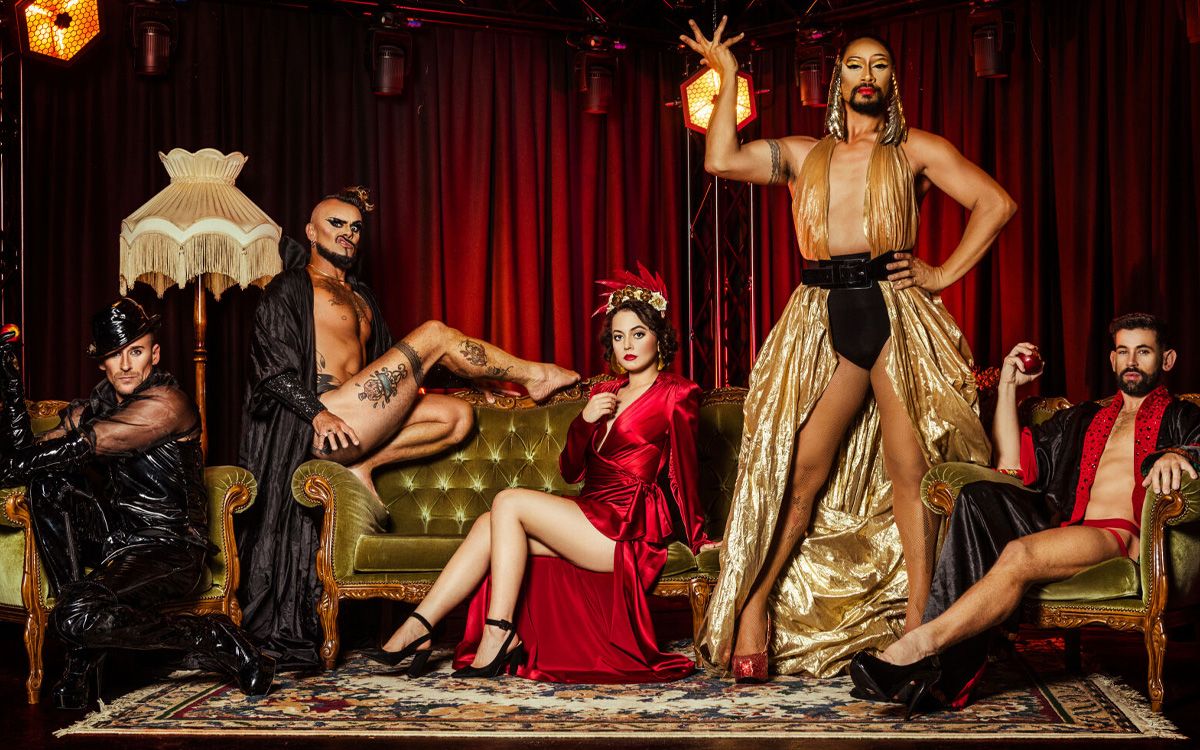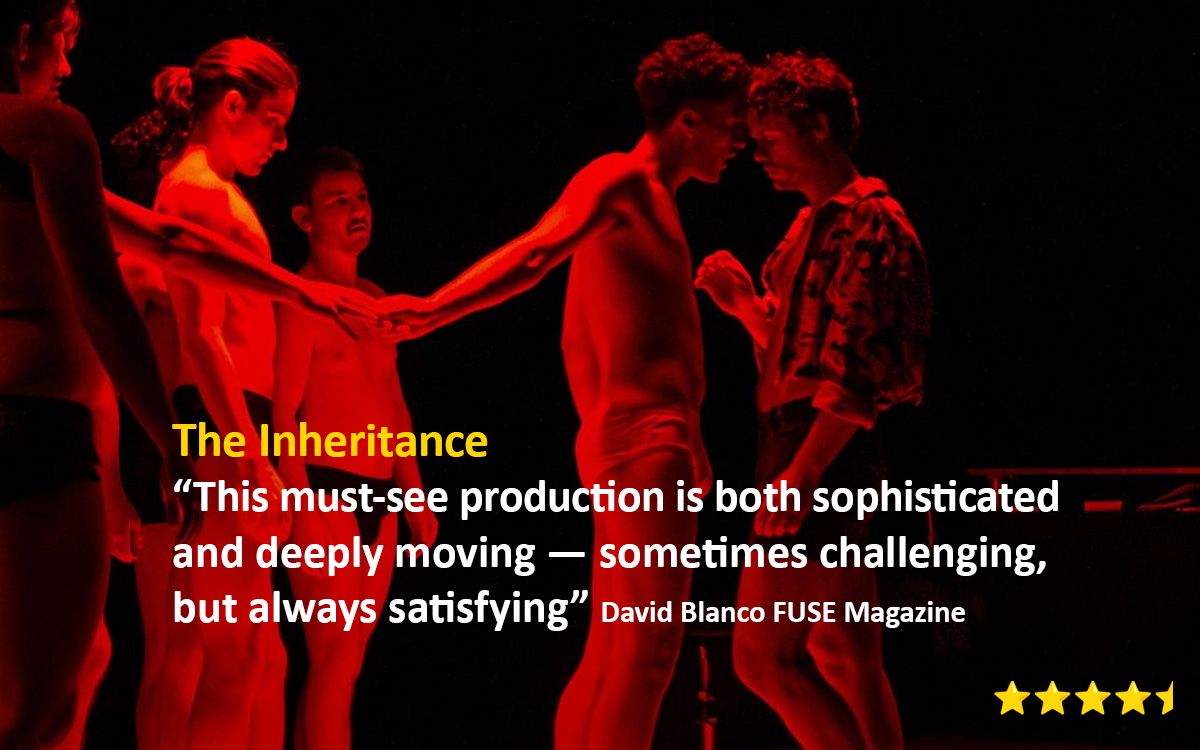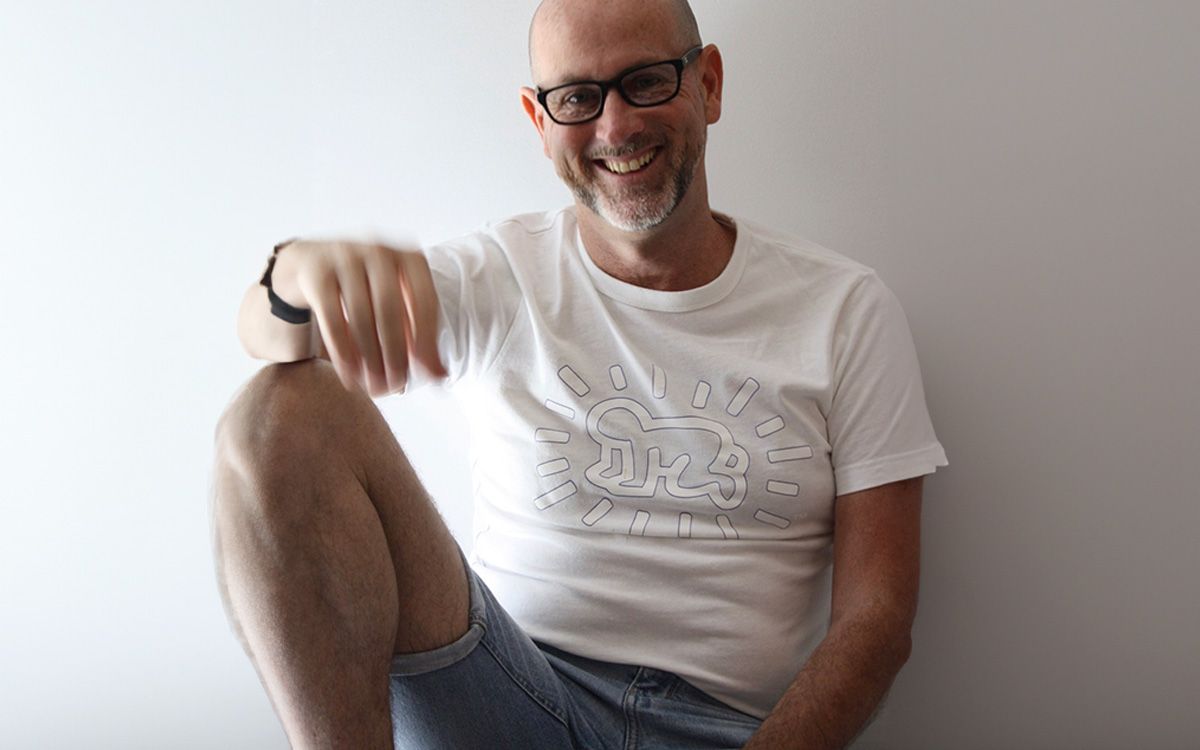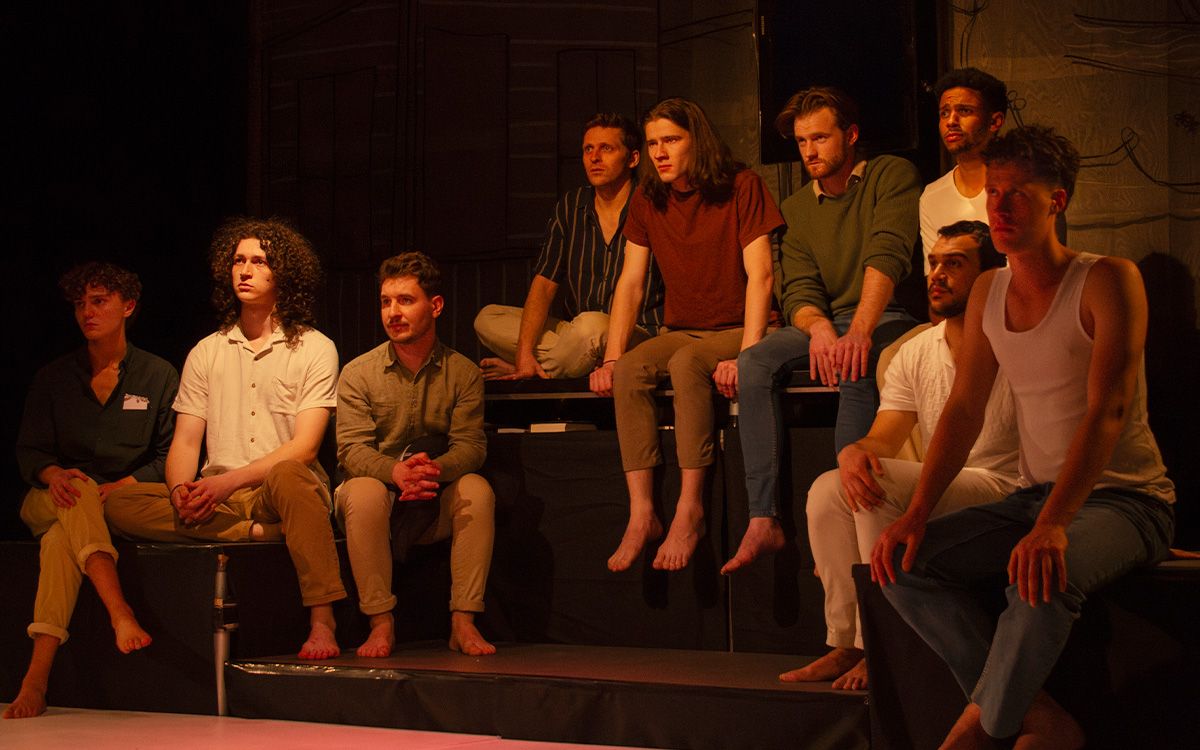- Home
- ENTERTAINMENT
- Arts & Culture
- Are you ready for Shakespeare’s most haunting thriller, Macbeth
Are you ready for Shakespeare’s most haunting thriller, Macbeth
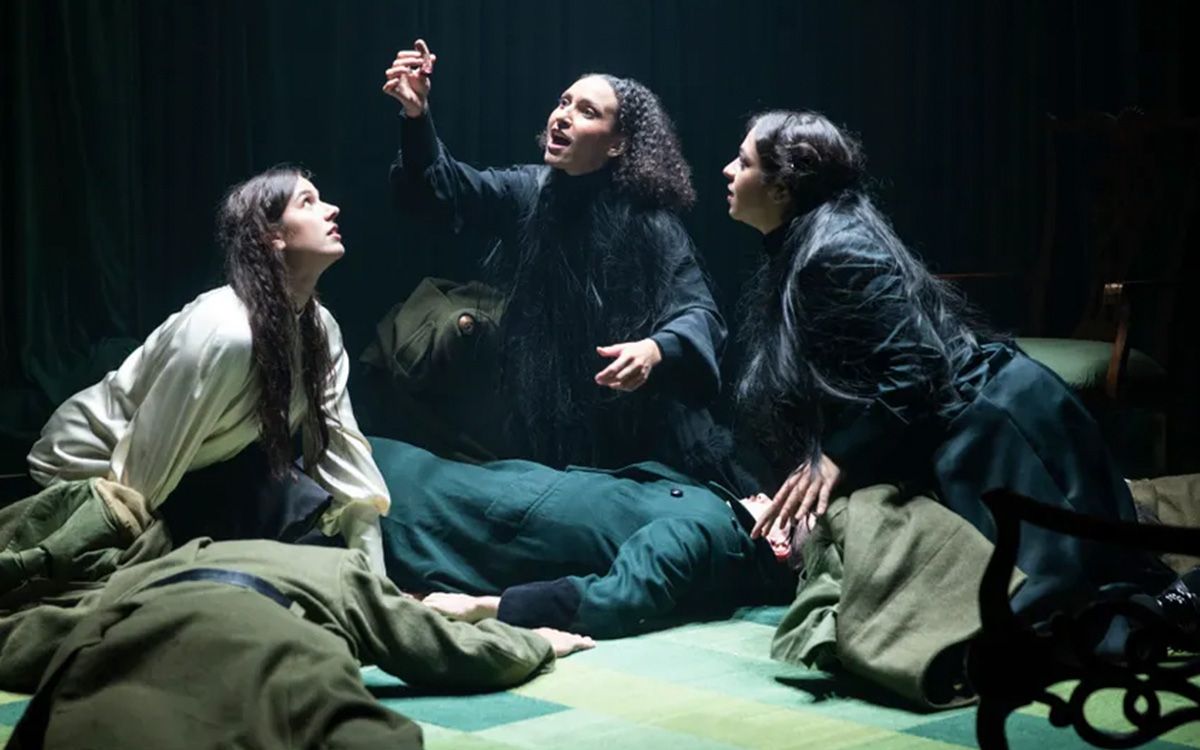
For over 30 years, the Bell Shakespeare Company has captivated Australian audiences with their innovative productions of the plays of William Shakespeare and his contemporaries. To celebrate the 400th anniversary of the publication of the Bard’s first folios, Bell Shakespeare is presenting a new production of ‘Macbeth’, with its Canberra season running from 14-22 April at The Playhouse and at Arts Centre Melbourne 27 April to 14 May
Shakespeare’s most haunting tragedy is given a sleek, minimalist makeover with a reimagined setting in the moody, Post-World War 1 1920s. This timeless masterwork is the enthralling, supernatural-tinged story of a Scottish General consumed with a bloodthirsty desire for power and the consequences of his treachery.
‘Macbeth’ has received critical raves for its lead performers, including Hazem Shammas (‘The Twelve’) in the title role and Jessica Tovey (‘Wolf Creek’) as the calculating Lady Macbeth.
Also receiving accolades is Julia Billington as Macbeth’s comrade and friend, Banquo.
David Blanco from FUSE spoke with Julia Billington about this must-see show.

Fuse: What sets Bell Shakespeare’s new production of ‘Macbeth’ apart, and what can Canberra audiences expect?
Julia Billington: This is director Peter Evans’ third time directing this play, and each time he approaches it from a very different lens (probably reflective of where he is at in his life). This time around, he is fascinated with the politics of the play and of the society surrounding the two central characters in terms of what they do, how they respond, how they reconcile practically knowing their leader has committed murder and yet still follow the system.
To that effect, the choice has been made to have all actors on stage for most of the play, a truly ensemble effort from us, and it heightens the sense that all these acts are not happening in an inconsequential vacuum but have onlookers.

FUSE: What are ‘Macbeth’s’ principal themes, and why do they remain relevant?
JULIA: ‘Macbeth’, like all of Shakespeare's plays, deals with the nature of humanity. In ‘Macbeth’ he is dealing largely with guilt, ambition, and desire, which are, of course, all things we know today, and will continue to know for many years to come. Another major theme of the play is what happens when we put ourselves first, denying ourselves to others. And of course, the question of how we deal with the aftermath of a choice to do something horrible, yet self-beneficial.
FUSE: Could you tell Fuse readers about Banquo, the character you play in ‘Macbeth’? Banquo is widely considered to function as a counterpart to Macbeth. Do you agree?
JULIA: Yes, I also see Banquo as a foil to Macbeth. Both men receive prophecies, both men are warriors, both men talk about having dark thoughts after hearing those initial prophecies. It's just that Banquo chooses in each moment to stay true to his noble nature. He also seeks guidance from "God" "Merciful powers" and "the heavens"... whereas Macbeth is often heard talking to darkness. It's a useful comparison set up by Shakespeare.
FUSE: In Elizabethan-era theatre, males played all the female roles, which allowed for an element of same-sex eroticism between actors. In ‘Macbeth’, you play Banquo, a role that has been traditionally played by a cis-male actors. In today’s climate of increasing acceptance gender fluidity and non-binary sexuality, do you think it important that this type of casting continue? If so, why?
JULIA: I think it's incredibly important. There is a current awareness around gender being largely something that is performed, as well as informed by so many unconscious biases, and that growing awareness and understanding is a wonderful thing. It encourages all people to be themselves.
By consciously casting myself in the role of Banquo, a female presenting, gender fluid actor (my pronouns are she/they), Peter Evans, our director, is doing exactly that: highlighting that there is an essence of an actor that can work to play a character, and you cast them for that reason.
Peter has done this before in casting Harriet Gordon-Anderson as Hamlet, or Kate Mulvaney as Richard III. I think in all these instances, he sees something in the actor’s essence that would make the character come alive in specific and interesting ways, and gender comes second to that.
FUSE: There is a current narrative that we should focus less on the literary legacy of ‘dead white males’ and expand the traditionally studied canon to include increased culturally and gender diverse voices. What is it about Shakespeare’s works that have made him such an enduring cultural force?
JULIA: Shakespeare is a philosopher of the human condition. The complexity of the characters in his plays, the societal structures that they live in, the nuance and depth of thought and struggle that we can access in Shakespeare is incredible, and it's why his plays remain to compelling to this day. Human nature hasn't really changed; our technology has, but the way we organise our societies, and what we feel while in them - that's all still very similar to how it was 450 years ago.
FUSE: ‘Macbeth’ boasts an impressive cast featuring Hazem Shammas, Jessica Tovey as well as your director, Peter Evans. How has it been working with them on this production?
JULIA: It's an utter pleasure! There is so much talent in the rehearsal room and I can't help but watch scenes that I'm not in with such awe for my colleagues. There is so much commitment, intelligence, and hunger to keep growing in their craft, as well as a determination and discipline to make this a really great work. It leaves me feeling proud, humbled, and overjoyed!

FUSE: Was Shakespearean acting something you wanted to do when you decided on a career in acting?
JULIA: I'm going to be bold and say that there is no such thing as "Shakespearean acting". Acting is acting. When you perform in a particular ‘style’, you always must come from a place of truth. Beyond that, there are certain skills for each style and medium.
Shakespeare requires a muscularity of language, but so do all the classic playwrights. There is also the element that Nigel Poulton, our Movement Director, has brought in of biomechanics. So, on top of truth, there are various theatrical elements to adhere to. But acting is acting. And if you want to interpret the full gamut of the human experience, Shakespeare gives you a decent sized slice of it in most of his plays!
FUSE: There is an old theatrical superstition that saying the word “Macbeth” out loud in a theatre brings bad luck to any production. It’s almost the opposite of saying ‘break a leg’ for actors! Have the cast and crew of ‘Macbeth’ avoided the “M-Word”?
JULIA: Well, our Stage Manager does! Every show we get a call over the backstage announcement system saying “Member of the Scottish Play Company, this is your 30 minute call…” So, she is being sensitive to possible superstition. So far, nothing untoward has happened to our company… so who knows, maybe it’s working!
FUSE: On a non- ‘Macbeth’ related topic, ‘Fuse’ readers may be interested to hear that you played Tara (the dead aunt), in the critically acclaimed Australian queer rom-com, ‘Ellie & Abbie (& Ellie’s Dead Aunt)’. What are your memories of working on this film?
JULIA: I loved working on "Ellie and Abbie (And Ellie's Dead Aunt)". It was a project where everyone involved, from cast to crew to interns, was so invested in making something really special.
For me, it was a role I instantly connected with and loved. As a new Aunt myself, it was kind of a love letter to my niece (now nieces) in a way, telling her that I would love and support her no matter what happens in life.
It was also a beautiful chance to play a member of the LGBTQIA+ community who really helped lift equality and drive the movement forward. Scripts like that don't come along all that often, and I will be forever grateful to Monica Zanetti for writing it and giving me the chance to play the role of Tara.
Canberra Theatre
14 APR -22 APR
Arts Centre Melbourne
27 APR -14 MAY



